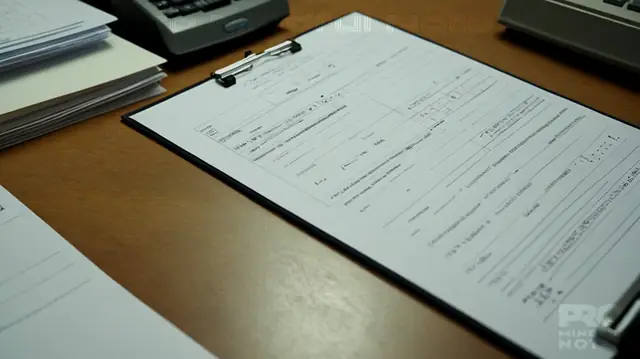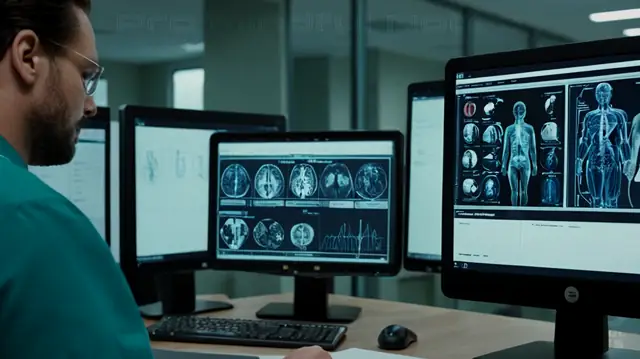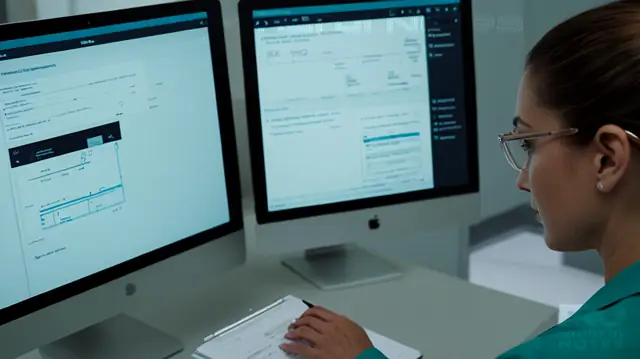Simplify medical recordkeeping with our efficient template and notation tips

In this article, we will delve into the world of clinical documentation and explore ways to simplify medical recordkeeping using our efficient template and notation tips. Whether you're a seasoned therapist or just starting your journey as a mental health professional, maintaining accurate and detailed records is crucial for effective patient care, continuity of treatment, and legal protection. To help you streamline this process, we've created a series of valuable resources, including the therapy progress note cheat sheet, clinical language cheat sheet, and therapy interventions cheat sheet.
These comprehensive guides will empower you to create high-quality documentation that meets the needs of your patients while also reducing your paperwork burden. By incorporating our expertly crafted templates into your daily routine, you'll be able to focus on what matters most - delivering top-notch care to those who need it. Our mental health progress notes cheat sheet, for example, provides a clear structure for recording patient information, treatment plans, and progress updates. Meanwhile, the clinical documentation cheat sheet pdf offers valuable tips for writing clear and concise language in your records.
In this article, we'll take a closer look at each of these valuable resources and demonstrate how they can be applied to real-world clinical scenarios. Whether you're searching for inspiration for crafting effective progress note cheat sheets, seeking guidance on navigating the complexities of therapist cheat sheets, or simply looking for ways to stay organized with your therapy documentation cheat sheet, we've got you covered. So, let's dive in and explore the power of our comprehensive clinical documentation tools!
- Importance of Efficient Medical Recordkeeping
- Essential Components of a Medical Record Template
- Tips for Writing Clear and Concise Progress Notes
- How to Organize Patient Information in Your Template
- Strategies for Streamlining Your Charting Process
- Benefits of Using a Standardized Template
- Common Pitfalls to Avoid in Medical Recordkeeping
- Conclusion
- Video about Simplify medical recordkeeping with our efficient template and notation tips
Importance of Efficient Medical Recordkeeping

Accurate and efficient therapy progress note cheat sheet is crucial for mental health professionals to maintain a detailed account of their Patient's treatment plans, interventions, and progress. This information plays a vital role in ensuring continuity of care, facilitating communication among healthcare providers, and providing a comprehensive record of patient outcomes. Moreover, having an organized system for documenting therapy notes cheat sheet enables therapists to easily track client progress, identify areas that require adjustment or further exploration, and make informed decisions about future treatment.
To streamline the documentation process, many therapists turn to valuable resources such as clinical language cheat sheet, therapy interventions cheat sheet, and mental health progress notes cheat sheet. These tools provide essential guidance on how to effectively communicate patient information in a clear, concise, and standardized manner. By using these resources, therapists can minimize errors, reduce the risk of miscommunication, and ensure that their patients receive the best possible care.
The benefits of efficient medical recordkeeping are numerous. For instance, having access to organized therapy progress notes cheat sheet enables mental health professionals to quickly identify patterns or trends in patient data, which is essential for developing effective treatment plans and making informed decisions about patient care. Additionally, an efficient documentation system can help reduce the administrative burden associated with maintaining records, allowing therapists to focus on what they do best – providing quality care to their patients.
For those seeking to simplify their medical recordkeeping process, we recommend consulting our therapy progress notes cheat sheet pdf, clinical documentation cheat sheet pdf, or mental health documentation cheat sheet. These comprehensive guides provide a wealth of information and practical tips on how to effectively document patient treatment plans and progress. By utilizing these resources, mental health professionals can ensure that their patients receive the best possible care while minimizing their own administrative burdens.
Essential Components of a Medical Record Template
When it comes to creating comprehensive and accurate medical records, having a well-structured template is crucial. The therapy progress note cheat sheet, for instance, provides a framework for documenting patient progress, including goals, objectives, and any notable changes or developments. Similarly, the clinical language cheat sheet helps mental health professionals standardize their terminology, reducing the risk of confusion or miscommunication.
To ensure that medical records are thorough and detailed, therapists should include essential components such as patient demographics, chief complaint or presenting problem, relevant medical history, mental health history, assessment results, treatment plan, and progress notes. The therapy interventions cheat sheet can be particularly helpful in documenting the various techniques and strategies used during therapy sessions.
In addition to these key components, it's also important to include a summary of the patient's current status and any recommendations for future treatment or care. By following a standardized template, such as the mental health progress notes cheat sheet, therapists can ensure that their records are complete, accurate, and easy to review. And with the help of our clinical documentation cheat sheet pdf and other resources, you'll be well on your way to creating high-quality medical records that support excellent patient care.
Tips for Writing Clear and Concise Progress Notes

To simplify your progress note cheat sheet, follow these straightforward tips:
- Begin each entry by restating the patient's presenting problem or chief complaint, followed by a concise summary of their current status.
- Use simple, clinical language cheat sheet-approved terminology to describe symptoms, behaviors, and treatment outcomes. Avoid using overly technical jargon or vague phrases that might confuse readers.
When describing therapy interventions cheat sheet, be specific about the techniques used, such as "Cognitive-behavioral therapy (CBT) focused on reframing negative thoughts" instead of simply stating "CBT." This clarity will help other healthcare professionals quickly understand your treatment approach and make informed decisions.
Remember that a good mental health progress notes cheat sheet should be both informative and efficient. Use bullet points or numbered lists to break down complex information into easy-to-digest chunks, and prioritize the most essential details over less relevant ones. This will save you time and reduce errors in your clinical documentation.
For even more assistance, consult a comprehensive therapy notes cheat sheet, like our Clinical Documentation Cheat Sheet PDF (available for download). This valuable resource offers a detailed guide to writing effective progress notes, featuring examples, templates, and best practices from experienced therapists.
How to Organize Patient Information in Your Template

When it comes to organizing patient information in your template, having a clear and logical structure is crucial for efficient therapy progress note writing. Start by creating separate sections for different types of information, such as therapy interventions, progress notes, and mental health history. This will help you quickly locate specific information and ensure that you don't forget to include important details.
Within each section, use clear headings and subheadings to break down the information further. For example, in your therapy progress note cheat sheet, you could have a section for "Treatment Goals" followed by "Interventions Used" and then "Client Response." This will help you stay focused on the key points and make it easier to generate consistent, high-quality notes.
To further streamline your process, consider creating a clinical language cheat sheet to help you standardize your notation. This can include common abbreviations, definitions of key terms, and examples of how to describe different interventions. By using this cheat sheet, you'll be able to maintain consistency across all of your progress notes and make it easier for other therapists or healthcare providers to understand your documentation.
In addition to these organization tips, consider consulting a therapy notes cheat sheet or mental health documentation cheat sheet for guidance on formatting and content. These resources can provide valuable insights and help you develop the skills you need to create detailed, accurate, and well-organized progress notes that effectively document patient therapy.
Strategies for Streamlining Your Charting Process
To simplify your charting process, it's essential to develop a routine and stick to it. One effective approach is to use therapist cheat sheets like the progress note cheat sheet, which provides a clear structure for organizing your thoughts and ensuring that all necessary information is included. By using these templates, you can reduce the time spent on charting and minimize errors.
Another strategy is to standardize your language when documenting therapy sessions. The clinical language cheat sheet can help you develop a consistent vocabulary and notation system, making it easier to read and review previous sessions. This will also improve the accuracy of your documentation and facilitate communication with colleagues and patients.
When it comes to recording specific therapy interventions, having a go-to reference like the therapy interventions cheat sheet can be invaluable. This resource can help you quickly recall effective strategies for common issues, such as anxiety or depression, and ensure that you're providing high-quality care. By keeping these resources at your fingertips, you'll be able to focus on what matters most – delivering effective therapy.
For mental health professionals looking for even more support, the mental health progress notes cheat sheet offers a comprehensive guide to documenting patient progress. This valuable resource can help you streamline your charting process and ensure that all necessary information is included in each note. By using these strategies and resources, you'll be able to simplify your charting process and devote more time to what really matters – helping your patients thrive.
Whether you're a seasoned therapist or just starting out, the therapy documentation cheat sheet can help you navigate the complexities of charting with ease. With its clear guidance and actionable tips, you'll be well-equipped to create accurate, thorough, and effective therapy notes that support your Patient's care.
Benefits of Using a Standardized Template

By using a standardized therapy progress note cheat sheet, clinicians can streamline their documentation process and maintain accurate, consistent records. A template provides a clear structure for organizing information, ensuring that essential details are captured while minimizing the need for repetitive or unnecessary notes. With a standardized format, you can easily compare patient data across sessions, identify trends, and track the effectiveness of various therapy interventions cheat sheet.
Moreover, using a standardized clinical language cheat sheet enables therapists to communicate more effectively with colleagues, patients, and healthcare providers. Consistent terminology and formatting reduce misunderstandings, facilitating collaboration and improving the overall quality of care. When you invest in a reliable therapist cheat sheet, you can focus on providing exceptional services while having confidence that your documentation accurately reflects your work.
By adopting a standardized approach to documenting mental health progress notes cheat sheet, therapists can also benefit from improved billing and reimbursement processes. Clear, concise records facilitate accurate coding and billing, reducing the risk of errors and delays. With a proven therapy progress notes cheat sheet pdf in place, you can enjoy increased efficiency, reduced administrative burdens, and enhanced patient care – all while maintaining compliance with regulatory requirements.
Whether you're seeking to optimize your clinical documentation cheat sheet, streamline your therapy documentation cheat sheet, or simply improve the overall quality of your therapy notes cheat sheet, using a standardized template is an excellent starting point. With our comprehensive mental health documentation cheat sheet, you'll be well on your way to simplifying medical recordkeeping and focusing on what matters most – delivering exceptional patient care.
Common Pitfalls to Avoid in Medical Recordkeeping
When it comes to maintaining accurate and detailed medical records, therapists often face challenges that can lead to mistakes or inaccuracies. One common pitfall is using clinical language cheat sheet jargon, making it difficult for other professionals to understand the documentation. For instance, using overly technical terms or complex sentence structures can hinder the ability of other healthcare providers to grasp the essence of a patient's situation.
Another pitfall is failing to maintain a clear and concise structure in therapy progress notes. This can lead to confusion about what was discussed during sessions or what interventions were implemented. To avoid this, therapists can utilize a therapy progress note cheat sheet to ensure that all necessary information is included in each entry. Additionally, using a standard format for recording mental health progress notes can help maintain consistency and accuracy.
Therapists also risk overlooking essential details when writing therapy intervention notes. A therapy interventions cheat sheet can help ensure that all relevant information is documented, including the specific techniques used and the patient's response to them. By avoiding these common pitfalls, therapists can maintain accurate and comprehensive medical records that support high-quality care for their patients.
To overcome these challenges, we recommend utilizing a comprehensive clinical documentation cheat sheet pdf, which provides a detailed framework for recording mental health progress notes. This tool can help streamline the documentation process, reduce errors, and improve communication with other healthcare professionals. By taking advantage of these resources, therapists can maintain accurate and effective medical records that support the best possible outcomes for their patients.
Conclusion

By incorporating these efficient templates and notation tips into your daily practice, you can simplify medical recordkeeping and focus on what matters most – providing high-quality care to your patients. The therapist cheat sheet, for instance, will help you streamline your therapy progress notes by breaking down the essential components and offering practical examples of effective clinical documentation.
The therapy interventions cheat sheet takes it a step further, providing actionable tips on how to describe interventions in a clear and concise manner, minimizing ambiguity and ensuring accurate records. Similarly, the mental health progress notes cheat sheet empowers you to create comprehensive and detailed records that support patient care continuity. And when you need to brush up on your clinical language skills, the clinical language cheat sheet will be there to guide you.
By having these valuable resources at your fingertips, such as the therapy documentation cheat sheet, mental health documentation cheat sheet, and progress note cheat sheet, you'll be able to quickly access the information you need to maintain accurate and detailed records. Whether you're a seasoned therapist or just starting out, our comprehensive clinical documentation cheat sheet pdf and therapy progress notes cheat sheet pdf will help you streamline your workflow and reduce stress, allowing you to focus on what matters most – providing exceptional care to your patients.
Video about Simplify medical recordkeeping with our efficient template and notation tips
Leave a Reply


Related Posts